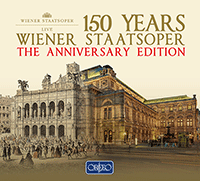Regina Resnik
Born into a Jewish family that had emigrated to America from the Ukraine, Resnik knew that she wanted to be an opera singer from an early age. Although her parents were unable to pay for singing lessons, at thirteen she began studying free of charge with Rosalie Miller and continued to work with Miller throughout her later educational and early professional career. Academically precocious as well as disciplined, Resnik attended a special high school where she was able to study German and Italian in anticipation of her future career.
She then attended Hunter College, earning a degree in music education that would enable her to teach if she could not support herself as an opera singer. However she quickly established herself as a singer of note: during 1942 she made her concert debut at the Brooklyn Academy of Music, sang Lady Macbeth / Macbeth in a production mounted by the New Opera Company in New York, and undertook a tour of forty concerts. Her international debut came in 1943, with Leonore / Fidelio in Mexico City.
During the same year, Resnik won the Metropolitan Opera auditions and made her Met debut in December substituting for Zinka Milanov as Leonora / Il trovatore. This was followed by the Fidelio Leonore, the title role in Tosca and Santuzza / Cavalleria rusticana. For a decade from the mid-1940s Resnik, now a leading soprano at the Met, sang roles there including Ellen Orford in the New York premiere of Peter Grimes, Alice Ford / Falstaff, Sieglinde / Die Walküre and Donna Anna and Donna Elvira / Don Giovanni.
Resnik’s European debut came with Sieglinde at the Bayreuth Festival in 1953, when the conductor Clemens Krauss suggested that her voice, which was becoming progressively darker, was a mezzo-soprano. With Rosalie Miller unable to help, Resnik turned to Giuseppe Danise for instruction and learnt several key mezzo-soprano roles. She made her debut as a mezzo at Cincinnatti in 1956 singing Amneris / Aida and Laura / La Gioconda, and returned to the Met to sing Marina / Boris Godunov during the 1956–1957 season. This was followed by the Baroness in the first performance of Samuel Barber’s Vanessa at the beginning of 1958; the title role in Carmen, Klytaemnestra / Elektra, Herodias / Salome, Geneviève / Pelléas et Mélisande and Mistress Quickly / Falstaff.
At the Royal Opera House, London Resnik first appeared in 1957 as Carmen. She returned regularly, her roles including Marina, Amneris, the Prioress / Dialogues des Carmélites, Mistress Quickly, Ulrica / Un ballo in maschera, Klytaemnestra and the Nurse / Die Frau ohne Schatten. She returned frequently also (often with Karajan in the pit) to the Vienna State Opera, where her debut had been as Carmen in 1957. In 1960 Resnik sang Eboli / Don Carlo at the Salzburg Festival, returning to Bayreuth the following year as Fricka / Der Ring des Nibelungen. She took the part of Claire in Gottfried von Einem’s Der Besuch der alten Dame at San Francisco in 1972.
Having by now branched out into opera production, Resnik directed Carmen at Hamburg in 1971 – a traditional production – and Elektra in Venice, a city to which she developed a close attachment. She celebrated the fortieth anniversary of her stage debut in 1982 by singing another key role, the Countess / The Queen of Spades, at San Francisco.
Very much a larger-than-life character in real life, Resnik was a formidable presence on stage, which she dominated in her chosen repertoire. She also made a successful transition to Broadway, playing Mrs Schneider / Cabaret in 1987 and Mme Armfeldt / A Little Night Music in 1991, and taught widely. Her voice was striking, both as a soprano and a mezzo-soprano.
© Naxos Rights International Ltd. — David Patmore (A–Z of Singers, Naxos 8.558097-100).



















